June 14, 2025 | 16:41
Science
Career
Education
Without enjoyment, the hardest subject matter won’t be truly grasped — Levon Sargsyan
It’s difficult to make language lessons truly engaging and enjoyable when they rely solely on grammar and vocabulary — especially in the case of German. Have you ever imagined how interested you would be in learning German if each of your lessons included elements of language, culture, history, and tradition?
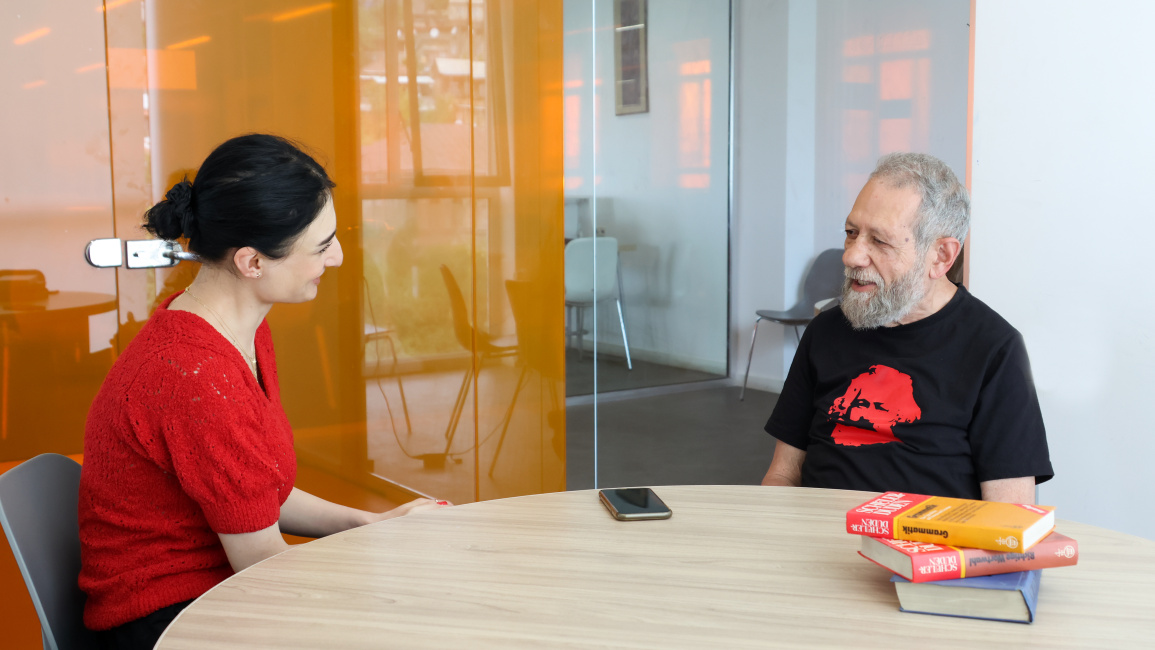
Levon Sargsyan, a lecturer in the Chair of Germanic Philology at Yerevan State University, affectionately known as Herr Levon in the German-speaking circles, excels at integrating these elements into his teaching. His innovative approach recently earned him YSU Alumni Excellence Award in the "Language, History, Culture, and Tradition" category.
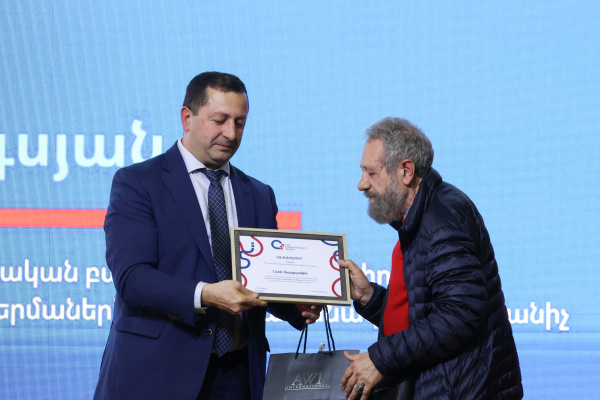
We spoke with Levon Sargsyan about German culture, Armenian traditions, and classical music.
— Mr. Sargsyan, how did your return to YSU come about?
— I worked at the university until 2011 — exactly 40 years — before retiring. During that time, alongside teaching, I also worked as a translator, primarily for various German companies and official meetings. Balancing these responsibilities was challenging, and sometimes I had to ask for substitutes or fill in for others, which wasn’t always ideal. Eventually, I decided 40 years was enough — there is a time to throw stones and a time to gather stones.
For 11 years after retiring, I dedicated myself solely to translation. Later, the chair head, a former student of mine, invited me to return. I agreed to try because I have always loved teaching. I came back last September and haven’t regretted it.
— Over your 40 years of teaching, how has the definition of a "good lecturer" changed? Is there a significant gap between today’s and yesterday’s good teachers?
— That’s a complex question. I don’t know many of today’s lecturers personally, but I think newcomers focus heavily on their subject matter and specialization. In contrast, there used to be a broader range of professional interests. This difference is also reflected during lessons. Additionally, today’s lecturers earn salaries appropriate to the times, whereas earlier, that wasn’t so much of a concern. (smiles)
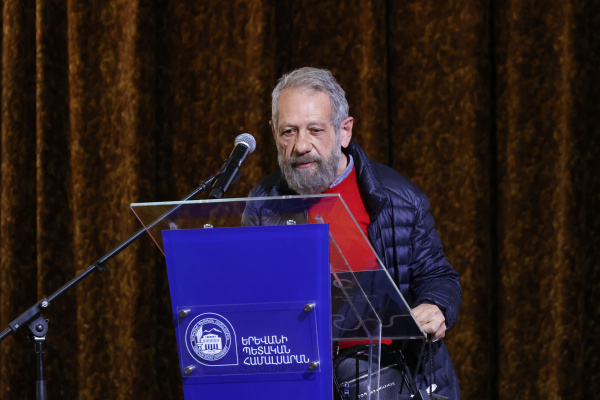
— Today, there is hardly any discussion, even in academic circles, where artificial intelligence (AI) is not mentioned. Are you concerned that AI might replace humans?
— I think AI might have a limited role in universities; in the field of translation, perhaps possible, but only in certain specialized areas. But I don’t believe that the live interaction between a lecturer and a student can ever be replaced by AI. And if it does happen, that would be unfortunate. (laughs)
— That’s exactly what I wanted to ask: how has the intensity of the lecturer-student relationship changed over the years?
— I’ve noticed that lecturers today are somewhat closer to students than they used to be, sometimes even to an excessive degree. In the past, we maintained more distance, although I personally always tried to be as approachable as possible while respecting boundaries. I must say that nowadays the student truly is at the center of the educational process, whereas before, the focus was more on the subject itself.
— You received your award in the category of "Language, History, Culture, and Tradition." Could you elaborate on what this combination means to you?
— The language I teach is, first and foremost, part of culture — or even culture itself. Language can also be musical or visual, but culture cannot exist without language, just as there can be no human without language. However, I believe that culture, in its broadest sense, should have a much greater role in teaching than it has so far.
I mean the general educational gaps I see in students today, who are, by the way, very diligent and hardworking. I start every class with a German poem because I have noticed the absence of this element, although its presence is very important.
In my opinion, one of the most crucial elements in learning is enjoyment. If you don’t enjoy learning, you will never truly master the subject, even if you are an excellent student.
I’m a bit of a hedonist — I love enjoyment in all areas of life, starting with drinking tea. I believe enjoyment must be an essential part of teaching. Without enjoyment, the hardest subject matter won’t be truly grasped.
Culture, poetry, and music, when incorporated into teaching, help even the most difficult subjects become more appealing.
— Do you have any unique teaching methods developed over the years?
— I wouldn’t say I have any unique method, but I deeply love German — the language and the culture. I think this love is what helps me the most because I have always tried to pass it on to those sitting in front of me. That’s the most important thing.
— You have taught German for nearly four decades. What have you given to the German language, and what has it given you?
— To some extent, I suppose I have become a bit German myself—for example, I’m very punctual and I’m never late. Certainly, Germany has provided for my wellbeing since most of my work was paid for by German organizations. I’ve been lucky, and luck is an important factor in any field.
In turn, I have contributed by helping Germans understand who we Armenians are through my interactions with many professionals from diverse sectors. In some ways, I have taught them to love us or at least to recognize us.
— Which of our traits do you emphasize when you want Germans to understand who we are?
— Definitely not hospitality. I think we tend to exaggerate our hospitality, and foreigners do the same by mentioning it first and foremost. Yet, I have seen German hospitality that is just as good as Armenian hospitality, and perhaps in some ways even a bit more sincere.
One of our interesting traits, I believe, is our openness toward foreigners. We enjoy interacting with foreigners and never isolate ourselves. Even though it may seem that we, as representatives of the former Soviet peoples, are closed off, in reality, that’s not true.
When I tell them about our culture, literature, and music, I also highlight our capabilities and cultural heritage.
— You mentioned telling Germans about our music — that’s interesting.
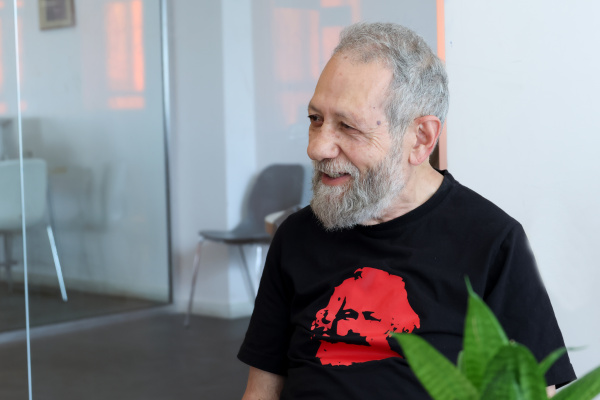
— I completely understood the question. Let me give you an example: I currently teach Armenian to a Russian couple who moved here and are eager to learn the language. Every lesson begins with a piece of Armenian music, but unfortunately, there are very few samples available. When it comes to German, I can offer my students an endless number of examples.
Our music offers a different kind of interest because it is quite distinct — much more emotional than German music. German music exists on a different level, not only as an art form but also from a craftsmanship perspective. Perhaps our craftsmanship is somewhat less developed, but our artistry and the natural element are very strong.
— Mr. Sargsyan, for those who want to pursue German studies or share your passion for the field, are there German works they absolutely must have studied inside and out?
— Certainly, there are works every Germanist must know. When I was a third-year student, I read Schiller’s Don Carlos and immediately thought, 'Now I truly know German.' For me, that was a benchmark.
But later, when I studied Schiller’s Wallenstein, I realized I still had a lot to learn.
Goethe’s works are also important, although perhaps I should have approached him earlier. In any case, from a language perspective, Schiller’s texts are very important and symbolic.
— Let’s move on to the culture of philosophy. What role does German philosophy play in your life?
— I wouldn’t say it has a major role. I haven’t focused much on German philosophers, although I’ve read some works in the past. Nowadays, I don’t read much philosophy; instead, I read a lot of detective novels. These are mostly Scandinavian novels in translation. But since we’re talking about philosophers, let me ask you something — do you recognize whose picture this is? (shows the picture on his t-shirt)
— Karl Marx?
— Yes, Karl Marx. I recently went to watch a play called "Karl Marx: Confessions" at the Sundukyan Theater. It reminded me of this t-shirt, which I bought in Marx’s hometown, Trier.
Marx wrote 11 theses on Ludwig Feuerbach, and the 11th thesis goes like this: 'The philosophers have only interpreted the world in various ways. The point is, however, to change it.'
— Do you agree with that?
— Absolutely. Especially today, the world definitely needs to be changed.
— In that case, how compatible are tradition and change? How do you envision the role of tradition in the modern world?
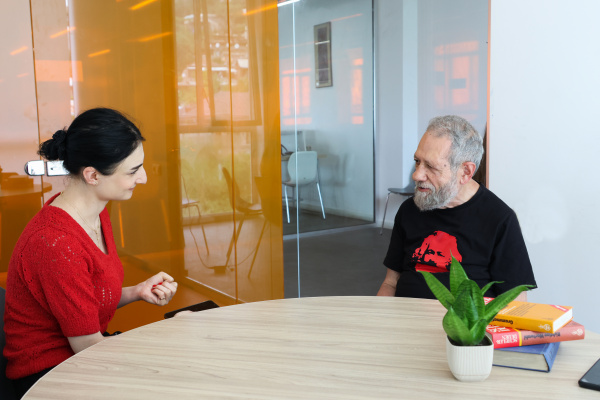
— In my opinion, tradition must evolve. It cannot remain something frozen or dead. Just like the Old Testament eventually developed into the New Testament without becoming a rigid relic. I’m not religious, but I consider that book significant.
By the way, yesterday I heard the prime minister of Armenia speaking at a government meeting. He mentioned the old tradition where several generations lived together in Armenian families. But that wasn’t really tradition — it was a sign of poverty. It used to be tradition, but has thankfully changed now.
— Does a tradition exist, for example, in teaching?
— I believe so. For instance, the entire Soviet university education system ultimately derives from the German model and, to some extent, continues today, which is positive. However, I also think it has changed somewhat, not always for the better. I’m not a big supporter of the current system.
— What do you mean?
— I mean, in the Bologna Process, there is no differentiated approach. For example, I don’t know how it works in mathematics, physics, or biology, but here, why do we have to take an intermediate exam immediately before the final one?
Every one of my lessons is like an exam. There are many unnecessary things that don’t help the learning process — they only hinder it.
But overall, the university tradition is mostly preserved, and I’m glad about that.
— How have you and Yerevan State University contributed to each other’s development?
— I love our university — I always have. I’ve been lucky to have excellent professors. When I was a student, our Armenian language class was divided into two groups. I was fortunate to have Emanuel Pivazyan as my teacher.
The other group was busy copying theories from various books, while we enjoyed our lessons because whenever we studied Armenian grammar, we always seasoned it with poetry, learned the numerical values of our letters, and were genuinely happy when Armenian language class began.
I’m also very pleased to see how much the university has advanced technically.
That said, I’m against the idea of Academic City. Our buildings should remain university buildings.

